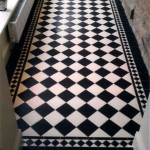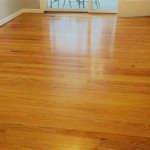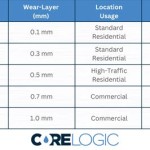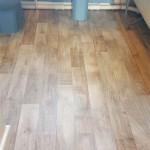Engineered Hardwood Flooring Vs Vinyl: A Comprehensive Comparison
When it comes to flooring options for your home, engineered hardwood flooring and vinyl are two of the most popular choices. Both offer a range of benefits and drawbacks, making it important to carefully consider their respective advantages and disadvantages before making a decision. This comprehensive comparison between engineered hardwood flooring and vinyl will provide you with the information you need to make an informed choice.
Appearance
Engineered hardwood flooring closely resembles the look and feel of traditional hardwood flooring, with a natural wood grain pattern and texture. Vinyl flooring can also be designed to mimic the appearance of hardwood, but it tends to have a more uniform and consistent surface. Ultimately, the choice between engineered hardwood and vinyl depends on your personal preferences and the desired aesthetic for your home.
Durability
Engineered hardwood flooring is generally more durable than vinyl flooring, especially when it comes to scratches and dents. However, vinyl flooring is more resistant to moisture and water damage, making it a better choice for areas prone to spills or high humidity. If you have pets or children, engineered hardwood may be a better option due to its higher resistance to scratches and damage from claws or toys.
Installation
Engineered hardwood flooring is typically installed using a floating method, which involves clicking the planks together over an underlayment. This makes it relatively easy to install yourself, even for those with limited DIY experience. Vinyl flooring can be installed using a variety of methods, including glue-down, click-lock, and loose-lay. Glue-down installation requires professional installation, while click-lock and loose-lay can be done by yourself.
Maintenance
Engineered hardwood flooring requires regular cleaning and occasional refinishing to maintain its appearance. Vinyl flooring is generally easier to maintain, as it can be cleaned with a damp mop or vacuum cleaner. However, vinyl flooring may require occasional waxing or sealing to protect it from scratches and stains.
Cost
Engineered hardwood flooring is typically more expensive than vinyl flooring. The cost of engineered hardwood can vary depending on the species of wood, the grade of the wood, and the installation method. Vinyl flooring is a more budget-friendly option, especially for those on a tight budget.
Environmental Impact
Engineered hardwood flooring is a more sustainable option than traditional hardwood flooring, as it uses less wood and can be harvested from sustainably managed forests. Vinyl flooring is typically made from synthetic materials, which can have a negative environmental impact. However, some vinyl flooring products are made from recycled materials or bio-based materials, which can reduce their environmental impact.
Conclusion
Both engineered hardwood flooring and vinyl flooring have their own unique advantages and disadvantages. By carefully considering the factors discussed in this comparison, you can make an informed decision about the best flooring option for your home and lifestyle.

How To Tell If Your Floor Is Hardwood Or Vinyl Garrison Collection

Luxury Vinyl Plank Flooring Vs Engineered Hardwood Next Day Floors

How To Tell If Your Floor Is Hardwood Or Vinyl Garrison Collection

Engineered Timber Flooring Vs Vinyl

How To Tell If Your Floor Is Hardwood Or Vinyl Garrison Collection
Solid Versus Engineered Floors Ken Spears Construction

Vinyl Plank Vs Hardwood A Cost And Feature Comparison The Carpet Guys

Vinyl Vs Engineered Hardwood Flooring From The Forest Llc

Vinyl Plank Vs Laminate Engineered Hardwood

Luxury Vinyl Tile Lvt Vs Engineered Hardwood What You Need To Know








